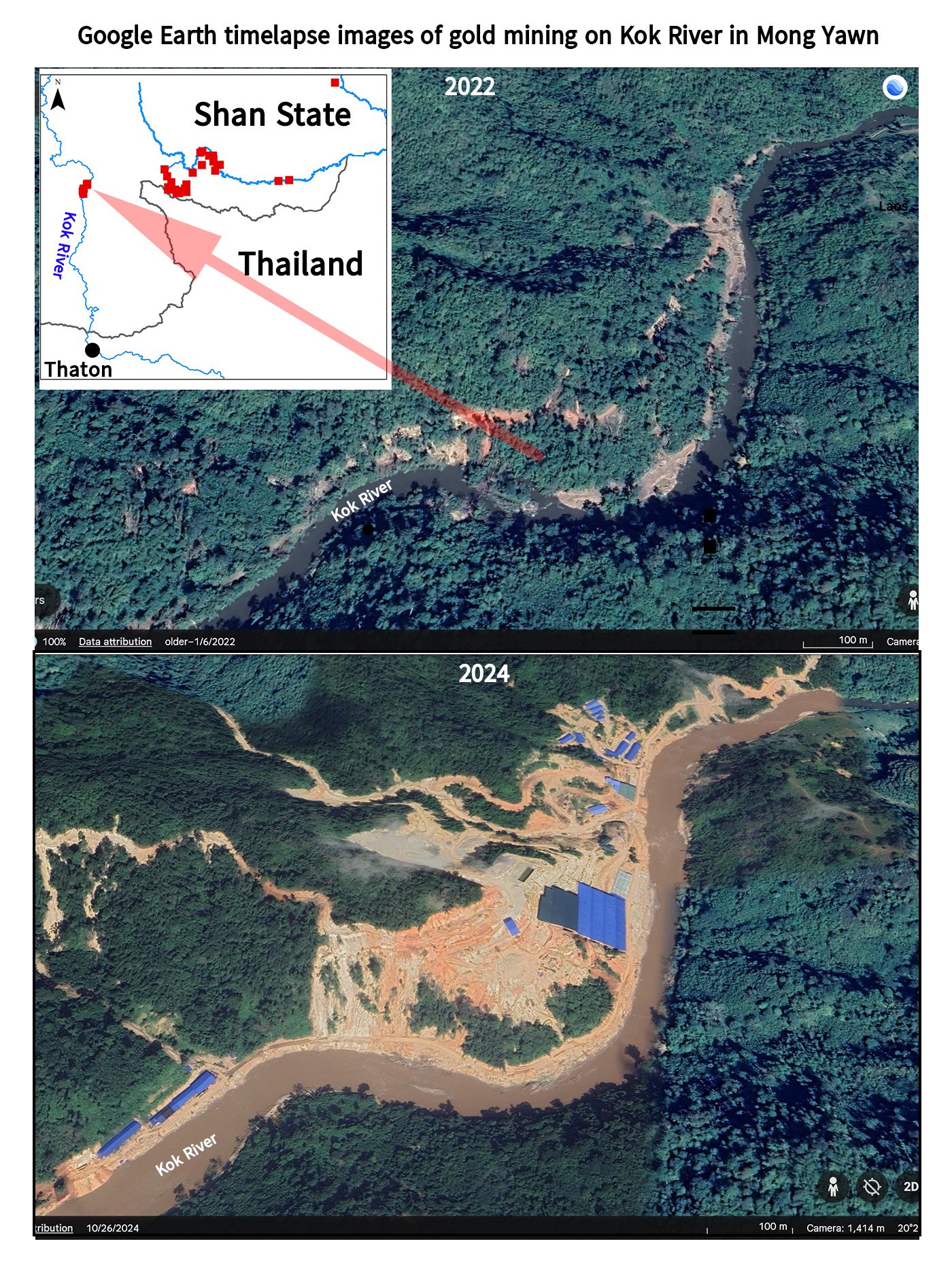700 local Thais gather to protect Kok River as 24-hour gold mining continues 30 kilometers upstream in southern Mong Hsat

Today, over 700 local Thai residents of Thaton in Mae Ai district of Chiang Mai, gathered at the town high school and walked to the Kok River to call for protection of the river on the International Day of Action for Rivers.
The local residents held banners opposing the damaging cross-border impacts of mining and deforestation along the Kok River in eastern Shan State, which contributed to unprecedented damage from flooding last year.
The statement by local organisers read: “Drought, flooding, forest fires, haze and climate change have significantly impacted the lives and property of everyone. These disasters are man-made, from deforestation, deliberate forest burning, mining and large dams, which are destroying water resources including the Kok River and other rivers. We want to send a wake-up call to our society, including all nationalities, about these impacts, urging an end to this destruction of natural resources which is impacting our health, livelihoods and future.”
The organisers stated they aimed to raise awareness among the public about the causes of natural disasters, and to let those responsible for the problems “realise that their destruction of nature is not only harming themselves, but also those in neighbouring countries.”
Since 2023, large scale gold mining has been taking place along the Kok River in Mong Yawn, southern Mong Hsat township, in an area controlled by the United Wa State Army (UWSA).
The mining exacerbated the damage from the heavy flooding of the Kok River in September 2024. The Shan village of Peng Kham in Mong Yawn tract was entirely submerged with mud-laden floodwater. On the Thai side of the border, Thaton and other villages along the Kok river in northern Chiang Mai province were also badly affected.
The gold mining on the Kok river in Mong Yawn has expanded in recent months, and locals say it is now being carried out 24 hours a day.
There are four main Chinese companies carrying out the mining, employing over 300 workers, who are mostly Chinese. They are mining on the hills and along the riverbanks, as well as using dredging boats on the river itself.
The mining residue, including toxic gold extraction chemicals such as cyanide, is flowing directly into the Kok River. This is causing water turbidity and pollution. Locals are too afraid to use the water for domestic consumption, and there are few fish left in the river.



Contact:
Sai Hor Hseng 66 94 728 6696 Signal (Shan, English)
Ying Leng Harn 1 825 425 4099 Signal (Burmese)
Ying Hom +66 82-893-2552 (Thai)


